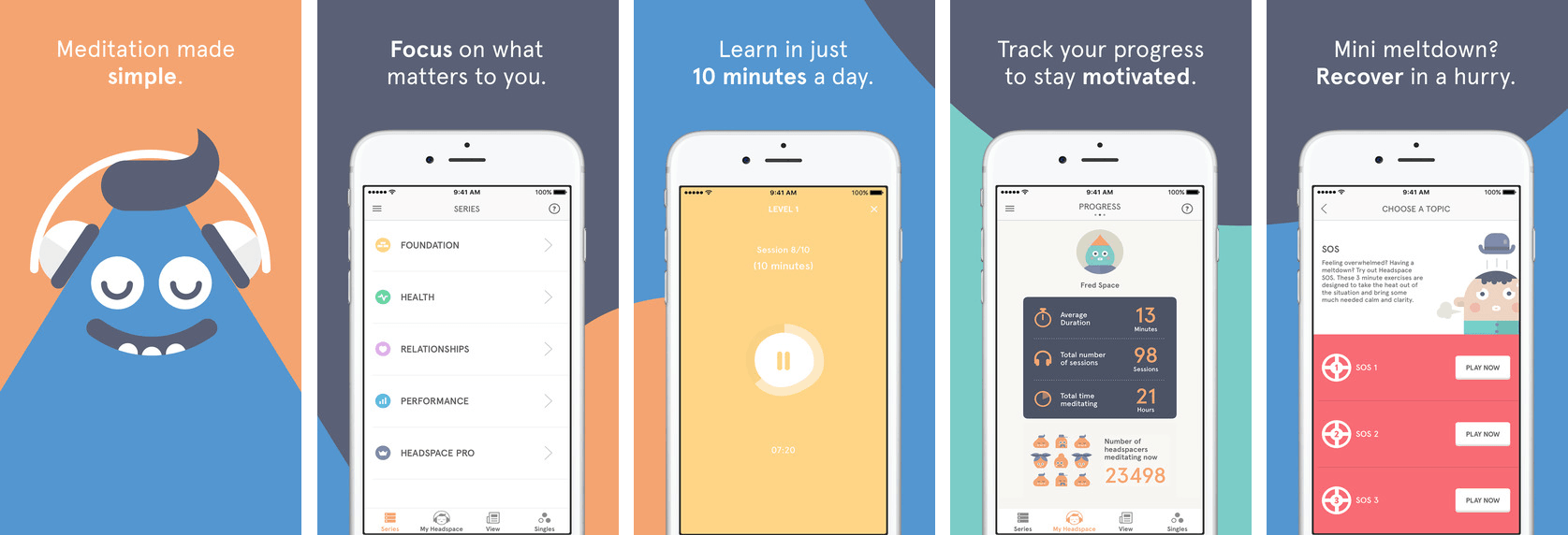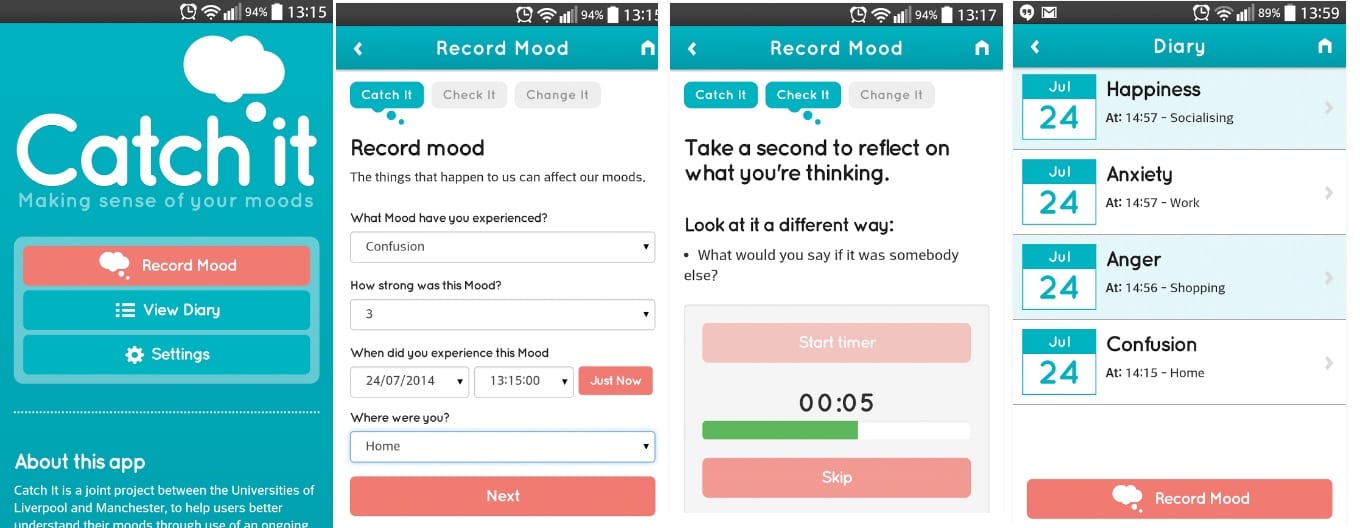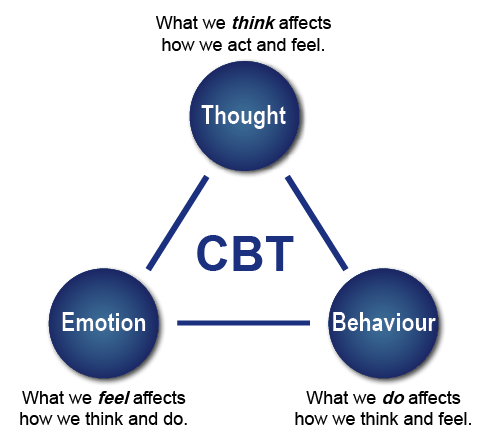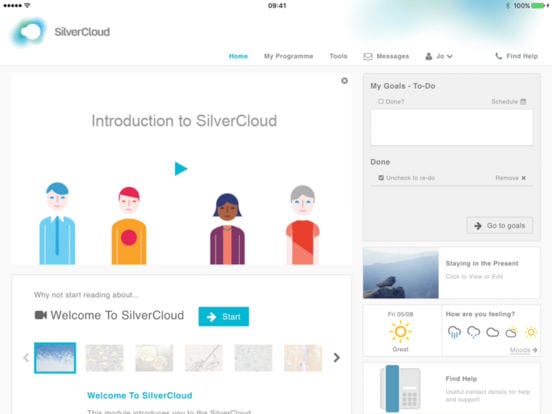In this post, I will research into current applications and other mental health tools that are currently available to my target audience of university students. The reasoning behind my focus on the application format above others because applications that can run on most smart devices are what the younger members of society are familiar with and the platform of the smartphone is one that always within reach of university students. This will ensure that the solution is able to reach those who need it within the university system.
 Headspace: Guided Meditation Platform
Headspace: Guided Meditation Platform
Headspace is by the most popular of the solutions I have come across due to its presentation and approach to the issue it tackles. The company was founded by Andy Puddicombe, a former Buddhist monk and Rich Pierson who has a background in marketing and new brand development.

The app provides personal meditation session which helps with certain areas of life and improves mental health such as stress, health and many more areas. These sessions are condensed into short bite sizes mediation exercises to accommodate busy schedules which is a big advantage for this app and is something that will be vital for my own solution as I observe from my own life as a student. In an interview with the Huffington Post, Andy Puddicombe says,
“Meditation is a really important tool, but it’s only when we bring it into our relationships and our lives that we start to really see the changes… For me, that is success… learning to put down all the stuff, that baggage that gets in the way and weighs us down in life, and learning to be kinder to ourselves and the people around us.” – Huffington Post
It’s clear from this interview that simple meditation can be an effective tool for coping with mental health and with Headspace claiming to have over 6 million people using the app this, I wanted to see how effective this application is to the everyday user so I looked to the reviews of users who have used the app so I looked at the Itunes page. Here are some reviews that I have found and I think some useful information can be found here;
“If you’re like us, you need all the help you can get turning rare quiet moments into true meditation. Headspace’s rich, accessible lessons gently explore how to improve mindfulness. Oh, and we love how Headspace’s Apple Watch app lets you hit a literal panic button when extra-stressful situations arise.”
“Honestly this app has been life-changing. I was at a low point in my life feeling depressed and anxious about exams and then, I randomly saw this as an advert. I was quite sceptical about meditation and whether or not it actually works so I thought I would give it a go after looking at the reviews. Honestly, after the first basics session, I felt my mind completely change, my thoughts that would race by all the time in my head suddenly began to settle and cause less of a mental strain. I felt happy and now after using headspace for two weeks, I genuinely feel like my mindset has transformed. I feel less anxious, more happy and more at peace as well as the fact that my concentration has now improved and I can actually focus on what someone is telling me as opposed to day dreaming like before. After cutting social media only using Facebook now, headspace has been a tool that has aided that removal of social media in my life so that I can focus on my academic work. If it wasn’t for headspace I really do think I would have struggled in my end of semester exams. Thank you so much headspace! P.s. The morning meditation which involves thinking of sunlight etc was amazing.”
“My GP referred me to this app. Trust the process through the Basics pack and watch all the free animations that really help with ‘getting it’. In 10 days I started to occasionally feel a difference and even used the techniques to undergo an examination of my gullet, stomach and duodenum by gastroscope without sedation and just a throat spray. So I signed up for the rest of the packs and WOW – there is so much more to this! I found myself in tears sometimes as I started to realise I was reconnecting mind and body during the meditation. I’ve tried to remember to do the exercises throughout the day, but it hasn’t always happened. But still, after years of nothing but anxiety, a feeling of life being one long ‘thing to do’ list, and losing all joy, this morning as I was scanning down during a ‘Stress’ meditation, the little glow of happiness was already in there – I didn’t have to put it there – and it was completely unexpected. I have a long way to go and still some big issues to deal with and this feels like I am finally on the right path to lasting resolutions.”

From these reviews it clear to see that using mediation as a tool is proven quite effective which will be imperative for students and their busy lives and workloads. An area of criticism I can level with this app is that the more tailored sessions are locked behind a subscription service that can deter many people who need to manage their financial situation such as people on low-income jobs and students. It can be argued that students who are paying to attend a university that they shouldn’t be charged extra that the university is providing in their student wellbeing service through an app on a phone. I would try to make the tools in my solution accessible and try to avoid paywalls to not deter users.
![]() Catch It -Making sense of your moods
Catch It -Making sense of your moods
This application is a joint effort from Universities of Liverpool and Manchester to help users to better understand their moods and the habitual emotions that occur in their day to day life.
This app, in particular, is quite interesting in the fact it is a response to the issue of mental health by universities. The app was designed to illustrate some of the key principles of psychological approaches to mental health and well-being, and specifically Cognitive Behavioural Therapy (CBT) which as proven to be an effective treatment for mental health illness. In an article for the University of Liverpool’s website, Professor Peter Kinderman, a professor of Clinical Psychology states,
“There were statistically significant reductions in negative mood intensity and increases in positive mood intensity. Smartphone apps have potential beneficial effects in mental health through the application of basic CBT principles. More research with randomised controlled trial designs should be conducted.” – Univeristy of Liverpool.
This application claims to help understand moods of the users using this diary format so I look at the reviews by users.
“I’ve tried a few CBT based apps and, although basic, this is the best I’ve come across. It has an intuitive simple interface and I like how you’re shown the thought description as a text bubble when writing the more compassionate re-evaluation. Best of all, it’s a free app! Thanks to the university teams involved in its development! A few suggestions for improvement: more mood types and more situations in the drop down menus are quick changes that would make the app immediately more flexible. In the medium to longer term, it would be great if more CBT tools could be integrated for users to take advantage of, for example identifying the so-called “bottom line” statements and the unhelpful precautions taken to maintain it.”
“This app is just what I was looking for, an easy way to record and rethink moods as they happen. I’d just suggest one tweak – the app asks you to record how you are feeling and then rethink how you are feeling. I tried to leave the second step a few hours, because in the midst of an anxiety attack I am not able to reflect rationally. However when I came back the entry I had started had disappeared. The app needs to let you add a half complete entry to the diary, which you can then come back to with new thoughts and perspectives once you’ve reflected properly.”
“The app is very well made, it gives examples which are helpful for the first time user, for me CBT is an effective way to manage the negative thoughts I sometimes have, keeping a record of them using this app helps me to recognise patterns and I usually feel better after I have used the app.”

From these reviews, it can be concluded that CBT is very effective when treating negative thoughts and the diary function can help users keep track of their emotions and better understand them, however, the main flaw with this application is the lack of professional intervention. This lack of professional assistance with these issues can lead to the issues not finding a long-term solution however if professional counsellors had access to these diaries it can be an invaluable tool for finding an effective treatment for their patients faster. This feature can be useful and I will try to incorporate it into my solution and use it as a way for students to note how they feel and allow the counsellors to use them to understand deeper issues.
 SilverCloud
SilverCloud
SilverCloud is unique as it is an application provided by NHS for those who suffer from mental health issues and the emotional challenges associated with long-term conditions.

The app works by cognitive behavioural therapy (CBT) to help you change the way you think and feel about things. Once registered, you work through a series of topics chosen by your therapist at your own pace, where and when it suits you. The therapist will check in with you about once every two weeks during the course to review your progress. The course features videos, activities, quizzes, audio guides and your own online journal. This takes elements from Catch-It and adds in a professional intervention with therapists and tailors it to the patient’s specific mental health issues to provide long-term solutions and effective tools to manage their health in the future. To see how effective this application is I looked to user-submitted reviews which I found,
“Really helpful The journal feature is amazing and really helps to deal with panic attacks”
“I love the app, however, on my old phone it was perfect Now that I am on my new phone (Samsung galaxy s8 plus) the app seems to be struggling and acting like a Web page. I can’t see the whole menu, so can’t access some areas Also, if something goes off screen, like a timetable, I cant scroll to see it again… It may be because my phone is new I hope there is a fix, as I really like using it on the go, but currently have to use it on my PC again.”
This app is certainly the strongest effective treatment using a combination of CBT and a diary to track issues and progress, however, the main drawback is that to have access to these services you’ll need a referral from a professional which can deter users from pursuing the service and not all students will have the time or knowledge to get a referral which may deter them from pursuing these options. Referring back to the interview I conducted in the last post-process such as referrals and doctor’s notes can prove to be a length and time wasting process which can prove frustrating and lead to long wait times. I would adopt these methods however I will try to keep the solution as fast and responsive as possible to avoid long waiting time for potentially vulnerable people.
LUMEN
LUMEN is a virtual reality application that uses virtual reality to relax and calm users in under five minutes while exploring the wonders of a bioluminescent forest with LUMEN, a self-guided, nonlinear meditation rooted at the intersection of virtual reality and wellness.
This idea is interesting as a tool to help combat anxiety in people by removing them from the environment for a short while and when used with mediation like narration to guide the user through their anxiety. The main issue with this is that it requires a bigger setup like a powerful pc and a headset, both are expensive and not accessible at all time. A potential workaround for this flaw is inspired by the Google Cardboard VR headset that turns a smartphone into a VR headset using nothing but cardboard and two plastic lenses which can be cheaply produced and given out at the Student Wellbeing Centre but this will need further development.
Conclusion
To conclude, there are applications that help treats but most have too many hurdles to gain the most out of them and to receive the most effective treatment such as payment and doctor’s referral and the lack of human face to face interaction is prominent. When applying these solutions to the problems covered in Mental Health and University Research and the issues that the University of lincoln’s Student Wellbeing centre being unresponsive and the barriers that occur can be solved through these means. Using these observations to manufacture some ideas to help solve the issues the Student Wellbeing centre is currently facing which will be covered in the next post.